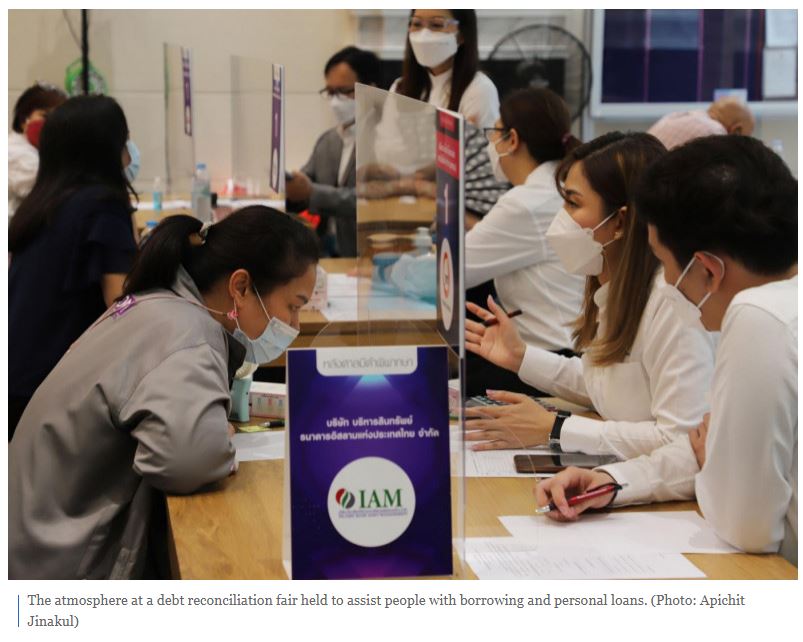Thailand: Survey finds household debt rising
Average household debt for workers has hit the highest level in 14 years, attributed to durable goods purchases, investment to create income and daily expenses.
However, there are signs the proportion of consumers’ unorganised loans, or borrowing from loan sharks, is beginning to decrease, according to the latest survey by the University of the Thai Chamber of Commerce (UTCC).
The survey interviewed 1,300 respondents earning no more than 15,000 baht per month. It was conducted during April 18-24 and revealed that average household debt for workers surged by 25% this year to 272,528 baht from 217,952 baht in 2022. Of the total, organised loans account for 79.8%, while unorganised loans represent 20.2%.
Thanavath Phonvichai, president of the UTCC, said the proportion of organised loans rose, while the proportion of unorganised loans dropped from the previous year, from 68.9% and 31.1%, respectively.
“Although household debt remains high, there is no need for concern yet. Some of the debt has likely been transferred from unorganised loans to organised loans,” he said.
According to the survey, the monthly repayment rate is 8,577 baht, with organised loans tallying a monthly repayment rate of 7,936 baht and an interest rate of 8.76% per year. The proportion owed to loan sharks averaged a monthly repayment rate of 2,381 baht and an interest rate of 15.5% per month.
In the past year, 58.5% of debtors never defaulted on their payments while their debt burden had no effect on their spending, according to the survey.
Some 77.2% of workers surveyed faced financial difficulties from insufficient income to cover expenses, while 12.8% had no problem as their expenses remain equal to their income.
According to Mr Thanavath, most respondents want the new government to pass policies that promote job creation in the provinces to stimulate GDP growth in these areas, allowing workers to live with their families in their home provinces and have equal opportunities.
Respondents also want quality healthcare benefits to help reduce expenses and ensure that prices of goods are in line with the income of low-income earners.
In addition, they would like a daily minimum wage hike that matches higher expenses. Respondents expressed concerns about job losses and higher inflation.
There are 8-10 million workers in the Thai labour system. If the daily minimum wage is increased by 1 baht, economists estimate it will result in higher spending of 3.5-4 billion baht per year.
“During Labour Day, the survey found most respondents are more willing to spend on making merit, watching movies, travel, going to Labour Day events and shopping,” he said. “We believe the holiday atmosphere will be more lively and spending will increase both in terms of transactions and value.”
Source: https://www.bangkokpost.com/business/2558781/survey-finds-household-debt-rising


 English
English




